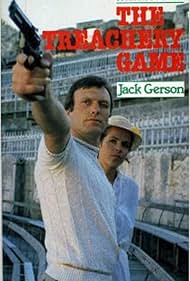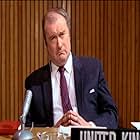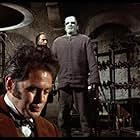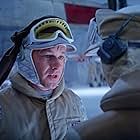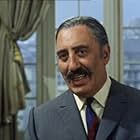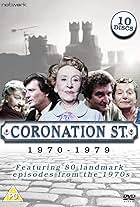The success of 1980's The Assassination Run led the BBC to make a sequel the following year, with the same production team and largely the same cast. Ex-assassin Mark Fraser and his wife Jill are holidaying in France when a biochemist is murdered nearby - and Fraser's car and fingerprints are found at the scene. The couple go on the run to find out who has framed them and why before agents of various countries can hunt down and eliminate them.
The Treachery Game is watchable, but doesn't work as well as its forebear. It suffers from the need of a sequel to up the stakes, so the investigative cat-and-mouse of the original is supplanted by helicopter chases, gun battles and drive-by Molotovings - which on a BBC budget are less than impressive.
Another problem is the plot itself. The first time around, the Cold War shenanigans were convoluted but ultimately paid off when the true nature and motives of the forces behind the Frasers' tormentors were revealed; here, it involves brainwashing and mind control, which even with an attempt to link it to the then-topical revelation of the CIA's MK-ULTRA programme is still portrayed in a way that now looks laughable.
At the end, the villain's unmasking is more a case of having exhausted every other possibility from the cast than deduction on Fraser's part. As for why the bad guys used such a complicated plan to frame Fraser when they could have simply shot Dr Aird (played in a fleeting cameo by Sean Connery's brother Neil) and walked away leaving the authorities in the dark... well, the only possible explanation is that if they hadn't, it would have been a very short series.
As before, it's not really an acting showcase. Malcolm Stoddard's Fraser is if anything even more stoic about the situation he's been thrown into, and Sandor Eles's Grigor - previously an amiable opponent - is much more short-tempered and a lot less likable. The standout character this time is Ben Aris's hapless MI6 officer Frank Lloyd; while competent enough on his own turf, he's nowhere near as capable as Fraser, Grigor or the other players in the field, and as a result feels very human as he's left floundering and blustering in their wake. (That doesn't mean he lacks resourcefulness at crucial moments, though!)
Disappointingly, the resourcefulness of Jill this time around has been curtailed. Her repeated escape attempts in The Assassination Run made her more than a mere helpless victim, but here Fraser flat-out tells her that if she stays with him, she's a liability. As a result, she spends a lot of the story waiting for him in various less-than-safe houses, being drugged or threatened by bad guys who regularly drop in like unwanted relatives. It's a let-down to see her so passive - though she does get a quite shocking scene in the final episode when she shows her true steel. She also has moments of anger at and doubt about her husband - is he lying to her about having retired? - but ultimately they come to nothing because there's never a suggestion that Fraser is anything other than a patsy.
Director Hannam makes good use of his French locations, the blazing Spanish sun of the earlier show replaced by golden landscapes and moodily-shot catacombs. There's a nice bit of serendipity when a cloud shadow whips away to catch Fraser in the sun like a spotlight just as a pursuing helicopter appears, something that would probably cost directors today a small fortune in CGI to duplicate. But Hannam is trying to make a feature film on a TV budget, and whenever he pushes too hard the tightness of the purse strings shows. The opening credits of the first episode include clips from pretty much every action scene in the whole series!
